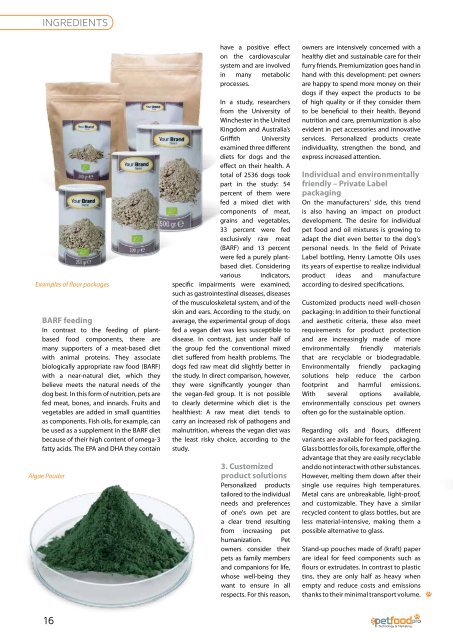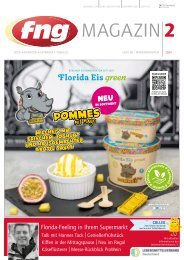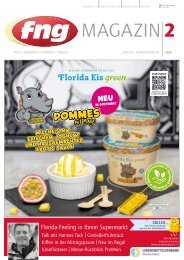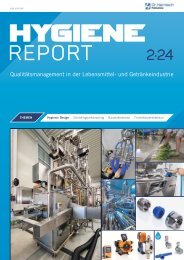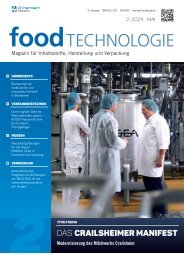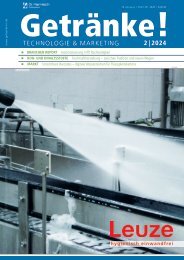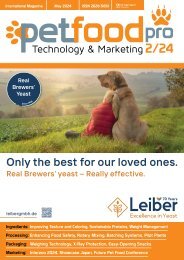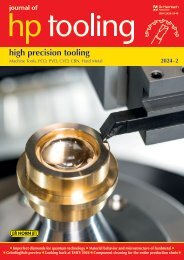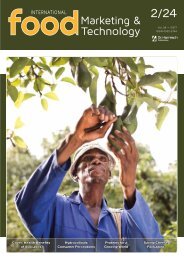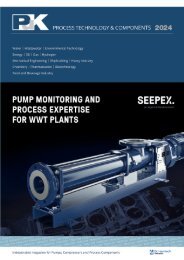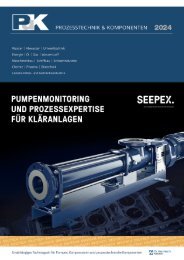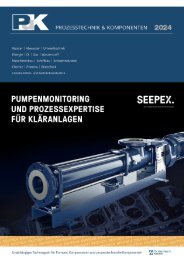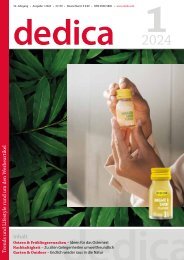petfoodpro 3/2023
PetFood PRO is the international magazine for executives and specialists in the manufacture of food for domestic animals – the pet food industry. The magazine focuses on food and delicacies for dogs, cats and other small animals, ornamental birds and fish, as well as animals kept in terrariums. We publish feature articles, reports and announcements about new ingredients, technology, equipment and processes, packaging machinery and materials as well as marketing trends and developments. Readers are executives, product developers and specialists in the pet food industry, including process and packaging engineers. PetFood PRO will be published in English. Circulation is worldwide, with an emphasis on important growth markets.
PetFood PRO is the international magazine for executives and specialists in the manufacture of food for domestic animals – the pet food industry. The magazine focuses on food and delicacies for dogs, cats and other small animals, ornamental birds and fish, as well as animals kept in terrariums.
We publish feature articles, reports and announcements about new ingredients, technology, equipment and processes, packaging machinery and materials as well as marketing trends and developments. Readers are executives, product developers and specialists in the pet food industry, including process and packaging engineers. PetFood PRO will be published in English. Circulation is worldwide, with an emphasis on important growth markets.
Create successful ePaper yourself
Turn your PDF publications into a flip-book with our unique Google optimized e-Paper software.
INGREDIENTS<br />
Examples of flour packages<br />
BARF feeding<br />
In contrast to the feeding of plantbased<br />
food components, there are<br />
many supporters of a meat-based diet<br />
with animal proteins. They associate<br />
biologically appropriate raw food (BARF)<br />
with a near-natural diet, which they<br />
believe meets the natural needs of the<br />
dog best. In this form of nutrition, pets are<br />
fed meat, bones, and innards. Fruits and<br />
vegetables are added in small quantities<br />
as components. Fish oils, for example, can<br />
be used as a supplement in the BARF diet<br />
because of their high content of omega-3<br />
fatty acids. The EPA and DHA they contain<br />
Algae Pouder<br />
have a positive effect<br />
on the cardiovascular<br />
system and are involved<br />
in many metabolic<br />
processes.<br />
In a study, researchers<br />
from the University of<br />
Winchester in the United<br />
Kingdom and Australia’s<br />
Griffith University<br />
examined three different<br />
diets for dogs and the<br />
effect on their health. A<br />
total of 2536 dogs took<br />
part in the study: 54<br />
percent of them were<br />
fed a mixed diet with<br />
components of meat,<br />
grains and vegetables,<br />
33 percent were fed<br />
exclusively raw meat<br />
(BARF) and 13 percent<br />
were fed a purely plantbased<br />
diet. Considering<br />
various indicators,<br />
specific impairments were examined,<br />
such as gastrointestinal diseases, diseases<br />
of the musculoskeletal system, and of the<br />
skin and ears. According to the study, on<br />
average, the experimental group of dogs<br />
fed a vegan diet was less susceptible to<br />
disease. In contrast, just under half of<br />
the group fed the conventional mixed<br />
diet suffered from health problems. The<br />
dogs fed raw meat did slightly better in<br />
the study. In direct comparison, however,<br />
they were significantly younger than<br />
the vegan-fed group. It is not possible<br />
to clearly determine which diet is the<br />
healthiest: A raw meat diet tends to<br />
carry an increased risk of pathogens and<br />
malnutrition, whereas the vegan diet was<br />
the least risky choice, according to the<br />
study.<br />
3. Customized<br />
product solutions<br />
Personalized products<br />
tailored to the individual<br />
needs and preferences<br />
of one's own pet are<br />
a clear trend resulting<br />
from increasing pet<br />
humanization. Pet<br />
owners consider their<br />
pets as family members<br />
and companions for life,<br />
whose well-being they<br />
want to ensure in all<br />
respects. For this reason,<br />
owners are intensively concerned with a<br />
healthy diet and sustainable care for their<br />
furry friends. Premiumization goes hand in<br />
hand with this development: pet owners<br />
are happy to spend more money on their<br />
dogs if they expect the products to be<br />
of high quality or if they consider them<br />
to be beneficial to their health. Beyond<br />
nutrition and care, premiumization is also<br />
evident in pet accessories and innovative<br />
services. Personalized products create<br />
individuality, strengthen the bond, and<br />
express increased attention.<br />
Individual and environmentally<br />
friendly – Private Label<br />
packaging<br />
On the manufacturers' side, this trend<br />
is also having an impact on product<br />
development. The desire for individual<br />
pet food and oil mixtures is growing to<br />
adapt the diet even better to the dog's<br />
personal needs. In the field of Private<br />
Label bottling, Henry Lamotte Oils uses<br />
its years of expertise to realize individual<br />
product ideas and manufacture<br />
according to desired specifications.<br />
Customized products need well-chosen<br />
packaging: In addition to their functional<br />
and aesthetic criteria, these also meet<br />
requirements for product protection<br />
and are increasingly made of more<br />
environmentally friendly materials<br />
that are recyclable or biodegradable.<br />
Environmentally friendly packaging<br />
solutions help reduce the carbon<br />
footprint and harmful emissions.<br />
With several options available,<br />
environmentally conscious pet owners<br />
often go for the sustainable option.<br />
Regarding oils and flours, different<br />
variants are available for feed packaging.<br />
Glass bottles for oils, for example, offer the<br />
advantage that they are easily recyclable<br />
and do not interact with other substances.<br />
However, melting them down after their<br />
single use requires high temperatures.<br />
Metal cans are unbreakable, light-proof,<br />
and customizable. They have a similar<br />
recycled content to glass bottles, but are<br />
less material-intensive, making them a<br />
possible alternative to glass.<br />
Stand-up pouches made of (kraft) paper<br />
are ideal for feed components such as<br />
flours or extrudates. In contrast to plastic<br />
tins, they are only half as heavy when<br />
empty and reduce costs and emissions<br />
thanks to their minimal transport volume.<br />
Technology & Marketing<br />
16<br />
Technology & Marketing


